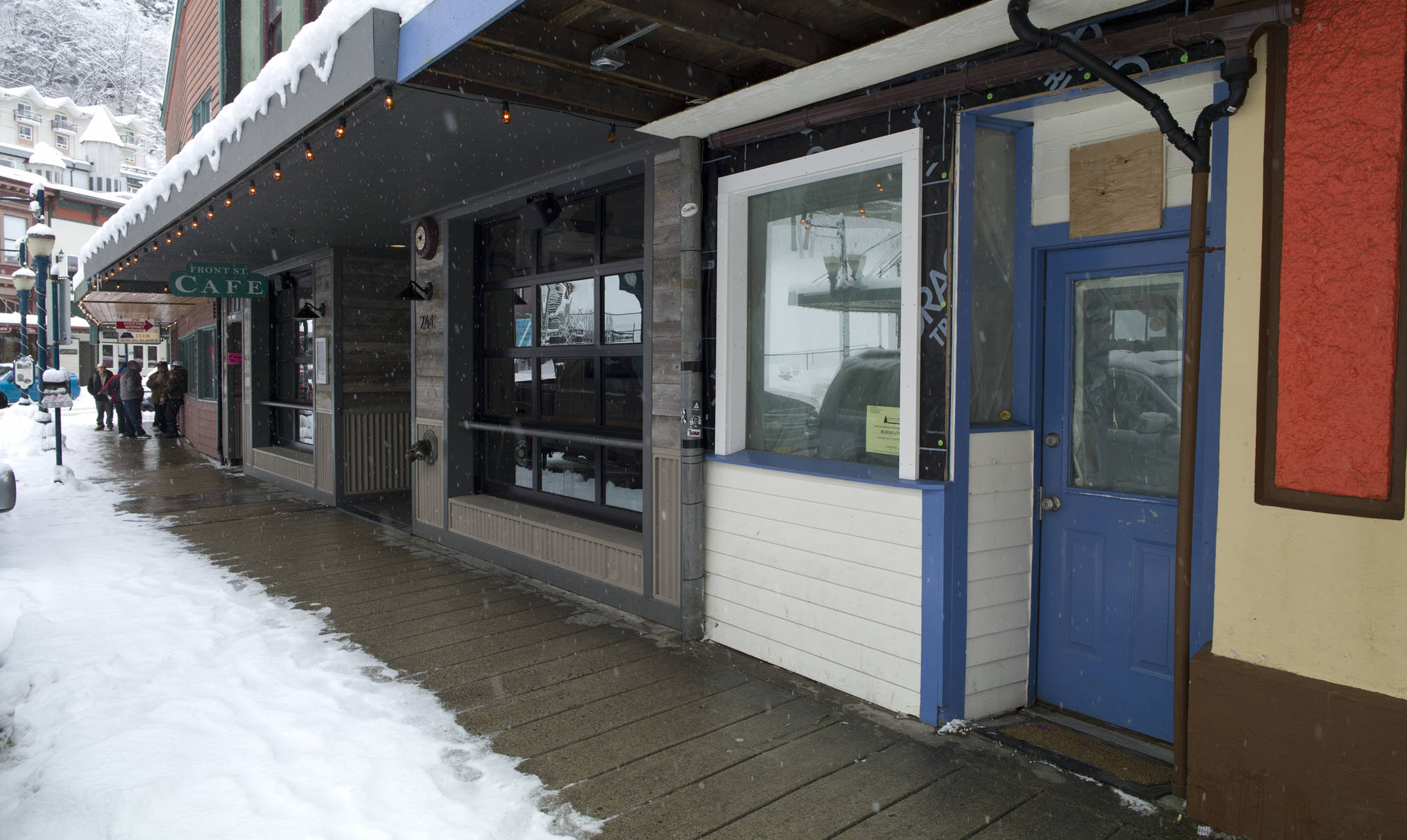As he talks about losing dozens of marijuana plants to a malfunction, Paul Disdier laughs, his blue eyes brightening.
It’s as if he enjoys the challenges along the way, or at the very least he’s optimistic that his company, Fireweed Factory LLC, will get up and running soon.
“These plants are really finicky to grow,” Disdier says. “You’d think they were just a weed and you put the seeds out and they pop up and grow like crazy, but they’re so hybrid now that they’re tricky to grow.”
In this instance, on this snowy Wednesday in March, Disdier is explaining how a light came on one night during what was supposed to be a “dark cycle” for a large group of marijuana plants, and ruined a portion of them. The crop he’s talking about started at around 480 plants and finished with somewhere around 370 plants.
Challenges and hurdles have become the norm for Fireweed, just as they have for any marijuana production looking to get off the ground in Alaska. Disdier and his small group of employees have labored through those problems, and are on the cusp of getting up and running.
A good start
In late March 2016, Fireweed earned a conditional use permit from the city’s Planning Commission, an important step. It was the first CUP that the city had awarded, doing so after public testimony from the Barrett brothers and others. The Barretts — James and Giono — own and operate Rainforest Farms LLC, a marijuana cultivation business. (No relation to the Barretts who own the Bergmann or Gastineau Apartments.)
The brothers were particularly impressed with Disdier’s plan for a closed-loop system, which Giono called “immaculate.” This closed-loop system recycles all the water and carbon dioxide used in the process, employing a series of dehumidifiers, fans, charcoal filters and more. It’s a rare endeavor.
The production was set to take place on Douglas Island, but a friend of Disdier’s reached out to him some months ago with an offer he couldn’t turn down. The friend had a small warehouse near the Juneau International Airport that had been a former welding shop, and was curious if Disdier wanted to use it.
Disdier toured it the next day. The insulation on the ceiling was black with soot and the steel was rusty in places. It would be a challenge to get this in clean condition, but Disdier gladly accepted. He and one of his sons spent the ensuing weeks vacuuming the ceiling and meticulously cleaning the place, and earned a clean bill of health.
Their closed-loop production now had a home, but the path didn’t get any easier.
Challenges
There are numerous hoops for marijuana producers to jump through, even with production of it legal in the state of Alaska. The Marijuana Control Board has a series of reviews, paperwork, inspections and interviews for each prospective company, examining both the growing facility and the retail property.
Fireweed went through it all and was approved, picking up tips from the board, such as doubling the number of security cameras at the facility. Fireweed also has a retail space on Front Street, set to open whenever the product is ready to sell.
One major hurdle for many marijuana companies is the relationship with banks. Alaska Marijuana Control Board member Loren Jones said banks present a “significant” challenge for companies such as Fireweed. Banks are very averse to doing business with marijuana companies and individuals involved with said properties due to the fact that marijuana is not federally legal.
“That all relates to the fact that it’s still a Schedule 1 drug with the feds,” Jones said, “and they operate under federal rules, and under federal rules, you cannot, as a bank, further a criminal enterprise by allowing them to legitimately bank.”
Another challenge is that of a testing lab. Juneau has yet to have a testing lab here, though Southeast Alaska Laboratories LLC is closing in on being approved locally. Without a testing lab in town, marijuana companies in Juneau have to take their product to Anchorage.
Even while they grow marijuana plants, taking them from germination to a dried-out and completed product, those at Fireweed are still in a waiting process. Waiting for the testing lab, waiting for further inspections and waiting to finally get their product on the market.
Disdier’s optimism is clear, though, even as he discusses the large costs of adding more LED lights and another heat pump.
“You’ve just got to take one step at a time,” Disdier said. “We’ve been at this for a year now, with all the money going out and nothing coming in.”
Reasons for optimism
Sometimes, despite the challenges, there are encouraging signs.
Disdier and his son James walk into the final room of the production (as it now stands), an unfinished room with a circle of marijuana plants in the middle. Fans rotate back and forth, sending waves through the bright green leaves as two security cameras watch from above.
These plants have been saved specifically to become “mother plants” in the future. That is, these plants will provide the seeds to make future crops of marijuana. Normally, they’re only able to save a few of these smaller plants in each cycle, as some of them end up not growing big enough to become mother plants.
“I don’t think we expected to keep this many,” James says, laughing, “but we did.”
They’re all different strains, ones that will someday carry names such as Gold Creek in a tribute to Juneau. Disdier explains that there are still some in the community who don’t support the marijuana trade, but that most have been accepting of this production. As he looks over the small crop in front of him, his eyes once again brighten for a moment.
“It will all work out in the end, this industry.”
• Contact reporter Alex McCarthy at 523-2271 or alex.mccarthy@juneauempire.com.

